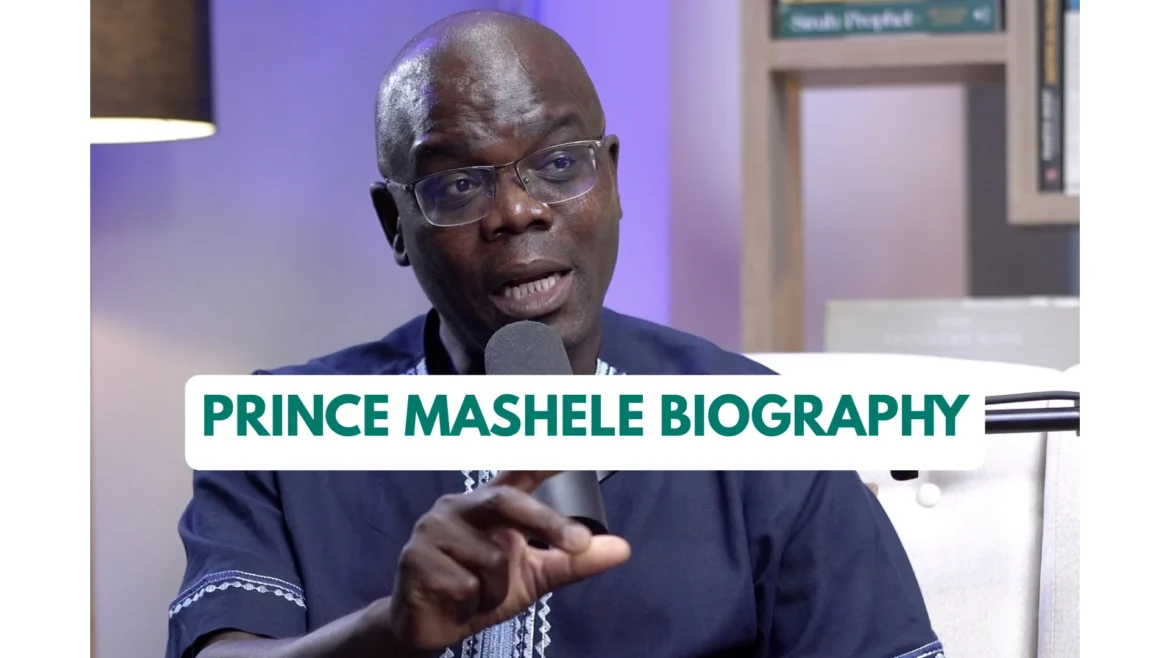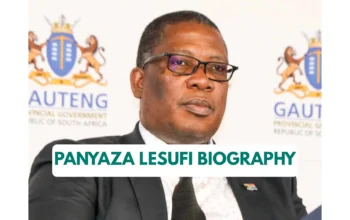Prince Mashele is one of South Africa’s most recognizable political analysts and public intellectuals. Known for sharp commentary, books examining the country’s political trajectory, and a career that moves between academia, think tanks, government and media, Mashele has become a frequent voice on governance, corruption and the future of South African politics.
This biography explores his early life and education, career highlights, major publications, controversies, and the influence he wields in public debate.
Bio Data
| Profile | Information |
|---|---|
| Full Name | Prince Mashele |
| Stage Name / Common Name | Prince Mashele |
| Born | March 4, 1972 |
| Age | ~ 53 years (as of 2025) |
| Birthplace | Ga-Matlala, Limpopo, South Africa |
| Nationality | South African |
| Occupation | Political analyst, author, public intellectual, consultant |
| Education | Master’s in Political Science (Rhodes University); Honours & BA from University of Venda |
| Religion | Not publicly documented / unknown |
| Parents | Not publicly documented / unknown |
| Siblings | Not publicly documented / unknown |
| Spouse | According to one source: Marta Mashele |
| Children | According to that same source: two children |
| Net Worth | Estimates vary: ~$500,000–$1 million |
Early life and education
Prince Mashele grew up in rural South Africa (reports indicate connections to Mpumalanga) and advanced through formal education to become a leading scholar and commentator. He holds a Master’s degree in Political Science from Rhodes University, along with earlier degrees from the University of Venda. His academic grounding gave him tools to analyze South Africa’s political institutions, crime and justice issues, and governance challenges.
Career path — from researcher to public intellectual
Mashele’s professional life spans several influential roles:
- He worked at research institutions early in his career, including roles at the Institute for Global Dialogue and the Institute for Security Studies where he headed the Crime, Justice and Politics Programme.
- He served as a speechwriter in The Presidency, giving him direct exposure to the mechanics of government communication and policymaking.
- He became Executive Director of the Centre for Politics and Research (CPR), a think tank that amplifies policy research and public-facing political analysis.
- Mashele has also lectured and been a visiting academic in political science departments (the University of Pretoria among them), and has been a frequent commentator on television, radio and in print media.
Major writings and books
Prince Mashele has authored and co-authored books that engage deeply with South Africa’s political direction. Notable publications include The Death of Our Society and contributions to works analyzing the crisis in the African National Congress (ANC) and South African governance. His writing often blends historical context, institutional critique, and prescriptive policy recommendations.
Themes and positions
Mashele’s commentary emphasizes several recurring themes:
- Structural reform over spectacle: he argues that focusing on institutional reform and accountability yields longer-term results than episodic political battles.
- Corruption and criminal networks: he often highlights the links between politics and criminality and calls for stronger oversight.
- Defending constitutional and civic norms: his public interventions routinely emphasize rule-of-law principles and the duty of citizens and leaders to uphold democratic institutions.
Media presence and public speaking
Mashele is a frequent guest on television panels, radio shows and podcasts. He also appears at literary festivals, university events, and think-tank briefings where he dissects developments in South African politics. His public lectures and media interviews help translate scholarly ideas into digestible commentary for wider audiences.
Controversies and public scrutiny
As a blunt public critic of political figures and institutions, Mashele has been involved in controversies:
- He has delivered sharp critiques of leadership within the ANC and other political figures — coverage of these interventions has sometimes triggered media storms and political pushback.
- Some of his social media posts and earlier commentary have been subject to investigation and public debate. This is often the fate of outspoken analysts operating in heated political environments.
Impact and legacy
Prince Mashele’s influence comes from combining research-based insight with accessible public commentary. He occupies a space where scholarly rigor meets media fluency: advising, analyzing and provoking debate. Whether readers agree with him or not, Mashele’s work has nudged conversations about accountability, governance, and the civic responsibilities of leaders and citizens in South Africa.
Frequently Asked Questions (FAQs)
Who is Prince Mashele?
Prince Mashele is a South African political analyst, author and public commentator known for his analysis on governance, corruption and the future of the ANC.
What is Mashele’s educational background?
He holds a Master’s degree in Political Science from Rhodes University and earlier degrees from the University of Venda.
Which institutions has he been affiliated with?
He’s worked at the Institute for Security Studies, the Institute for Global Dialogue, served in The Presidency as a speechwriter, and led the Centre for Politics and Research.
Has he written any books?
Yes — Mashele has authored books and essays about South African politics, including The Death of Our Society.
Why does he attract controversy?
His forthright critique of political leaders and institutions often provokes strong reactions from those he criticizes, which is common for prominent public intellectuals.
Conclusion
Prince Mashele stands out as a prominent voice in South African public life — a combination of academic training, practical experience and fearless commentary. His contributions to public debate on governance, corruption and democratic accountability make him a consequential figure in contemporary South African politics. Whether one agrees with his analyses or not, his work provokes the kind of scrutiny and conversation necessary in a healthy democracy.




